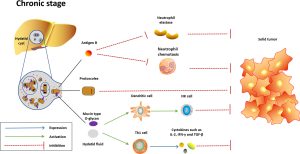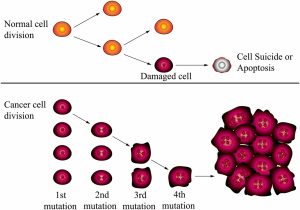Introduction
In the intricate web of human health, the connection between parasites and cancer risk has emerged as a fascinating yet complex area of study. Over recent years, scientific research has increasingly shed light on the undeniable relationship between certain parasitic infections and an elevated susceptibility to cancer. Understanding the mechanisms that underlie this association unveils a profound interplay between parasitic organisms and the human immune system, offering insights into potential preventive and therapeutic strategies against cancer.
Unveiling the Relationship
Several parasites have been implicated in elevating cancer risk, with notable examples including Helicobacter pylori, Schistosoma haematobium, and certain species of the liver fluke, among others. These parasites, often endemic in specific regions, establish chronic infections within their human hosts, leading to prolonged inflammation and tissue damage—a key factor in carcinogenesis.
Helicobacter pylori and Gastric Cancer
Helicobacter pylori, a bacterium infecting the stomach lining, is a well-documented example. This bacterium not only causes gastritis and peptic ulcers but also increases the risk of developing gastric cancer. The chronic inflammatory response triggered by H. pylori infection creates an environment conducive to cancerous transformations within the stomach lining cells.

Schistosoma haematobium and Bladder Cancer
Schistosoma haematobium, a parasitic flatworm, primarily found in certain parts of Africa and the Middle East, has been associated with a higher incidence of bladder cancer. The eggs deposited by these parasites in the bladder trigger chronic inflammation, leading to the formation of granulomas and subsequent tissue scarring—a predisposing factor for carcinogenesis.
Liver Flukes and Biliary Tract Cancer
Liver flukes, such as Opisthorchis viverrini and Clonorchis sinensis, prevalent in regions of Southeast Asia, cause chronic infections in the bile ducts. Prolonged inflammation and damage to the bile duct epithelium contribute significantly to the development of bile duct cancer, known as cholangiocarcinoma.
Mechanisms Underlying Parasitic-Induced Carcinogenesis
The link between parasitic infections and cancer development involves a complex interplay of various mechanisms that progressively transform healthy tissues into cancerous ones.
Chronic Inflammation: Persistent infection by parasites triggers an ongoing inflammatory response. The continuous release of inflammatory mediators and the recruitment of immune cells lead to tissue damage, creating an environment ripe for cellular mutations and cancer initiation.
Immune Suppression: Parasites have evolved various strategies to evade the host immune system. By modulating immune responses, parasites can interfere with the body’s ability to detect and eliminate cancerous cells, fostering their survival and proliferation.
Genetic and Epigenetic Alterations: Parasite-induced inflammation can cause genetic mutations and epigenetic changes in host cells. These alterations can disrupt normal cellular processes, leading to uncontrolled growth and eventual tumor formation.

Clinical Implications and Future Directions
Understanding the intricate relationship between parasitic infections and cancer risk holds immense clinical significance. Firstly, this knowledge aids in the identification of high-risk populations in endemic areas, allowing for targeted screening and preventive interventions. Moreover, it highlights the potential for novel therapeutic approaches that target both the parasite and the associated cancer risk. Efforts to control and eliminate parasitic infections through mass drug administration and improved sanitation can significantly reduce the burden of associated cancers. Furthermore, ongoing research focuses on developing vaccines targeting specific parasites to prevent infections and subsequently lower cancer risks.
Conclusion
The intersection of parasitic infections and cancer risk represents a multifaceted terrain of scientific inquiry. The intricate mechanisms involving chronic inflammation, immune modulation, and genetic alterations underscore the pivotal role of parasitic organisms in fostering a tumorigenic environment within the human body. As research continues to unravel the complexities of this relationship, there arises the potential for innovative strategies to mitigate cancer risks associated with parasitic infections. Ultimately, a comprehensive understanding of these connections holds promise for advancing both preventive and therapeutic avenues in the fight against cancer.



